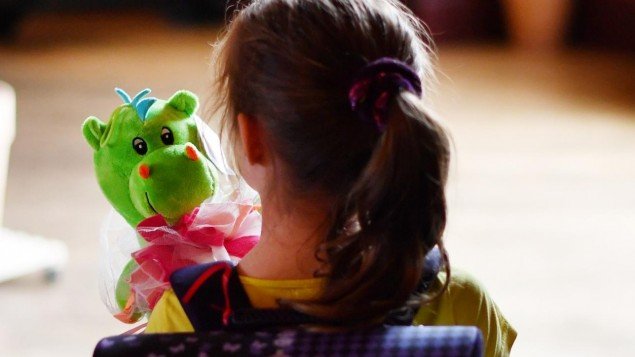child poverty in the world is advertised again and again, but what about our children?
shouldn’t we put every mark imaginable First donate to our own children in the country?
how can it be that so many children are suffering from hunger in their own country and that we are happy to sponsor africa??
because nobody knows what our own children are doing?
is arche berlin not enough signal?
where are our money going??
11 answers
That is a good question and not so easy to answer.
You’re right, but it’s not that easy against child poverty in Germany to do.
There will certainly be a lot of children accepted / adopted in Germany, but more children will be given away than will be adopted.
If you compare homes in Germany with poverty in Africa, for example, there are worlds in between. The children here are well helped in homes, while in Africa small children starve or die of their illnesses.
Therefore, there may be a greater need for a child to live a better life "to fetch".
Of course you should also do this in Germany, but apparently most of them really don’t see the forest for the trees.
-

Sign in to reply to replies

That many children in too "our " Almost everyone knows that Germany is starving and living in poverty. But I think for some it is "Fancy", to be able to say that you have a sponsored child in Africa, where you can send something from time to time. but it’s also easier because a certain distance is created, you don’t have poverty with you "own " Eyes seen and you don’t get into the situation of having to face this child personally. In Germany, you do not have the opportunity to support a specific child, but rather some non-profit organizations where you cannot see exactly what happened to the money, the soft toys or the school supplies that you made available.
Furthermore, there are many facilities in Germany that children can visit, as well as the ark or other facilities where poor people get something to eat and possibly a roof over their heads, even if it is only temporary. In Germany you are not forced to starve like in Africa or other third world countries, which is why many people think that you will help more if you give the money to non-profit organizations abroad.
-

Sign in to reply to replies
That’s a really good question. Donations and investments are made everywhere, but poverty is also present in their own country.
-

Sign in to reply to replies

Original text of the AWO (Workers’ Welfare):
"One speaks of poverty when the income of the child’s family is a maximum of 50% of the average German income.
The average income is 40,000 euros gross (according to the Federal Statistical Office).
And now my counter question. Are families whose gross income is 20,000 euros really poor!?
I do not want to deny that there are many poor children (and families). But this definition of the AWO seems a little arbitrary to me, because after that half of Germany is poor.
-

Sign in to reply to replies
International children’s aid is primarily supported by private NGOs. The FRG is less generous in terms of development aid, government development aid flows back through the detour of developing countries through the awarding of contracts to other industrialized countries or to the FRG.
The donors to the NGOs are often pensioners, i.e. people with little money. The volume is in the million range, not in the billion range. That’s not a lot of money, so nothing to get from the pensioners. In developing countries, however, it is still suitable for private project making.
For comparison, the WCF has an annual donation volume of 50 million euros.
A combat exercise of an armored train fired more than 1 million euros in ammunition. A technical laboratory at a university is worth a few million.
So of the magnitude that can not divert money from the developing countries to the FRG.
Donations are also private money. One would have to talk the pensioners over, money for Germans Donate children. However, the pensioners pass on money to their grandchildren.
So there are still childless but well-paid couples. I don’t have any numbers for them, how many there are. But they will show you the bird to take care of strange children, even if the children are German.
That leaves employers, who could give up part of the profits for raising children. They will never do that.
You can still cover the country with kindergarten places and all-day schools to get more working mothers like elsewhere in Europe.
Initially costs money, but could (perhaps) be brought back in by taxes from the part-time mothers.
So I don’t really think that there are enough high-income earners in the FRG who could support the children with billions of dollars.
That leaves the employer and the option of part-time mothers. The second is on the up.
Converting a full-time job into two part-time jobs results in more productivity for the employer. He gets the opportunity to lower wages.
That happened in the Netherlands. Dutch employers could not afford to invest in machines because part-time work ensured high productivity. In the short term, certainly practical. disadvantageous in the long term. The men won’t thank you. But part of the men could continue to advance if the part-time jobs are complementary to their job. For men in a competing industry, this means loss of wages.
However, we would get a lot more space for mothers, if there are structures for working mothers, they are difficult to push back. Here’s a plus point because of emancipatory feminism.
What are you doing? ? .
-

Sign in to reply to replies
Then we would admit indirectly that we are to blame!
-

Sign in to reply to replies

It’s not that easy.
If you ensure that children lead to a flow of money, you motivate certain (lower) classes to give birth to many children!
30 years ago in France there was so much child benefit that from around 7 children per couple you no longer had to work to live well. A huge opportunity for immigrants and lower classes. But who wants that especially couples like this reproduce?
It is quite logical that the level of the school will then drop – if you are not taught the language or a minimal general education at home.
-

Sign in to reply to replies

Counter question: What are you doing???
I am a foster mother – so do my part, I lack the money for financial help, unfortunately!
-

Sign in to reply to replies

I translate: Child poverty.
1. Physical poverty – hunger, thirst, die from easily curable diseases, child labor with physical damage and death, etc.
2. Mental poverty – mental weakness due to lack and opportunity for education, emotional deficits with numbness, mental illnesses etc.
Today’s thinking has fleshed out in the flesh and blood. This national is the illusory form of community and in reality represents nothing but the bourgeois economic area with a single currency. However, after the introduction of the euro, this economic area is precisely this euro zone. In this euro zone, however, are countries that have benefited from the colonization of Africa, far more than the German Reich, and now to pay off debts "to wish" is of course a member of this honorable club of the first world for some, "inmost" issue.
However, capitalism as a given form of gaining life is completely unsuitable to really remedy the situation, since its basic contradiction leads to creating poverty with increasing productivity. Here it is so that only the burning of work is claimed as an abstract quantity. However, the increase in the productive power of human labor leads to a decrease in this category, known as the cost factor, the number of employees, and to an absolute reduction in the cost of reproduction of the human product. The value mass can only be obtained through express methods of increasing exploitation (more out than in).
A reduction in the cost of reproduction means that the condition of the system undermines itself. This negative reproduction has been in the third world in the past "relocated". Now this is no longer possible and the absolute impoverishment process prevails in the first world. This is not only relative but increasingly in progressive absolute form. Political means have to fail because they cannot take the form of existence of the present into consideration, because politics is part of the ideological superstructure of bourgeois-capitalist society. Others too "pure acts of will" must remain relatively ineffective. So far so bad.
Poverty in children, i.e. childlessness, is a characteristic of real people who have to bow to the realities of life in capital-determined forms of society "drinnzubleiben".
I think it’s nice that you can speak openly of lower classes and the like again without being ruffed out for it. They are a fact and were a fact. The fact that this means, of course, the absurdity of people who can no longer bow to the madness of contemporary society, or are allowed to do so, naturally goes completely against this chauvinistic, ideological term. But in a judgment, as is well known, the assessor judges himself.
RELATED ITEMS
-

Employees with children have a privilege to vacation on vacation, yahoo clever
Is there a legal regulation that says that employees with school-age children have a privilege to vacation during the holiday season? So justify…
-

Are there people who make something out of selflessness? Where are you, yahoo clever
I am a Christian and believe in the principle of charity. I’ve believed in it all my life. I actually thought so cold-heartedly…
-

Children or careers, yahoo clever
When should you prefer the second to the first? 21 answers If it doesn’t work out or you don’t want to have children, then you should be…
-

Society – what to do about child poverty in Germany? (Archive)
Guests: Claudia Held, child protection officer of the Berlin city mission and economist Stefan Sell, Koblenz University of Applied Sciences. Poor children often become poor…
